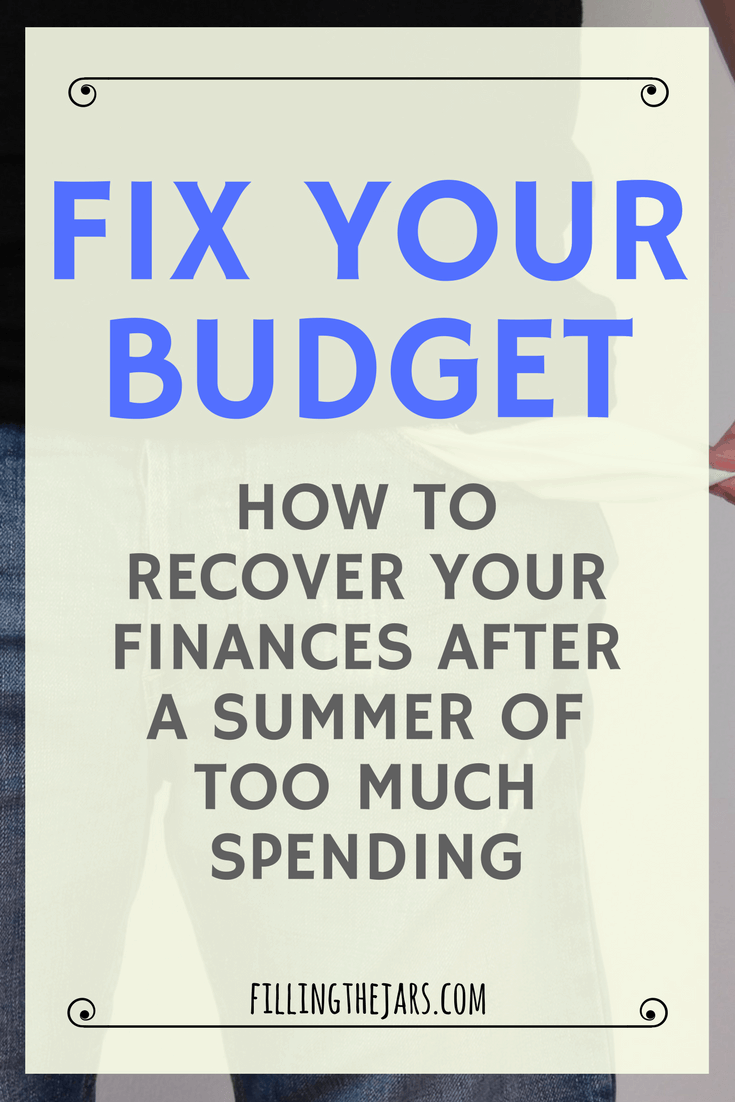It happens to most of us every year – plans for making the best of the hot summer months while sticking to a budget manage to go awry and we spend the rest of the year trying to figure out where our money went.
Over spending on vacation is the biggest problem for most people. Nearly 60 percent of Americans blow through their vacation budget and more than half pile up credit card debt as a result. Then, as the weather begins to really heat up in July and August, lingering in air conditioned spaces such as shopping malls, movie theaters and restaurants becomes the summer pastime.
Instead of ending summer with fond memories, most people are left with unanticipated credit card debt as a keepsake.
It’s a big issue for people on a tight budget because they are likely to run into the same problem when the holidays come around in a few short months. Then, any overspending will only exacerbate their debt problem which will make it difficult to plan for any summer fun the next year or achieve any financial goals.
If you find yourself staring at a big credit card bill at the end of August, it’s time to get out in front of the problem before it becomes a permanent fixture in your personal finances. Here’s what you need to do get square with your finances.

Tighten Your Budget
To find the money to quickly pay down your debt, you will need to completely restructure your budget. It is time to reprioritize your spending, reduce or eliminate non-essential spending and make your debt payment your top line expenditure.
If you have credit card debt of $2,000, you should be able to pay in full with three monthly payments of $700. Make that your monthly target. The sooner you can pay off your debt, the sooner you can apply that cash to saving for your holiday spending. Here’s where you can find several hundred dollars a month:
- Switch to basic cable or just use a TV streaming service like Hulu.
- Cut back on your driving. Pick up a car pool; stay close to home on the weekends; bike into town
- Stop dining out, including lunch. Take bag lunches to work and set up a weekly meal plan that will enable you to buy in bulk and cook several meals ahead of time.
- Skip fall clothes shopping or, if your kids need clothes for school, shop the thrift stores. You can buy quality clothing at a fraction of the cost.
Take Advantage of Fall Savings
No, we’re not talking about shopping mall sales. Fall is a great time to start a new and tighter budget because there are so many opportunities to save money. The weather is mild, perfect for taking hikes and using the outdoors as your entertainment venue. Most people live within a short drive of any number of fall festivals that take place throughout the country.

Pay Off Credit Card Debt ASAP
Paying off credit cards is like saving in reverse but much more expensive. The amount of money that has accumulated on your credit cards over the summer is the amount of money you should have saved before the summer but didn’t.
The problem is, instead of earning interest, you are paying it; and the longer you take to the pay off your credit cards, that interest will compound. Make it your top priority to pay off your credit card debt, even if you have to make some major sacrifices to do it.
A first step in paying off debt is to stop using it. Put your credit cards on ice for the next few months and don’t buy anything unless you have the cash to pay for it.
If your credit card debt is of the high interest variety – more than 15 percent – you might consider taking out a personal loan to consolidate it and lower your interest costs. If you have good credit, you may be able to qualify for an unsecured loan through an online lender with lower rates.
If you are going to take this route, you still need to pay it off as quickly as possible. The advantage you’re looking for with a personal loan is lower interest costs which will allow you to pay down your principal more quickly.

Plan for Holiday Spending Now
It is critically important that your fall budget lines up with your holiday spending needs. While you may have to allocate a big portion of your excess cash flow towards paying off summer debt, you should try to stretch it to include some holiday savings. If your summer excesses results in less holiday spending, so be it; but you should budget for it now.
Take time now to review your holiday spending from last year, including credit card receipts and checking account statements. Determine what you can spend this year without going into more debt. Save what you can while you are paying down your debt. If you can pay it off in a couple of months, it will give you a couple of months to reallocate that cash flow to savings.
Closing Thoughts
The biggest mistake you can make is to allow your summer credit card debt to linger. If you make the same mistake of overspending during the holidays, you will only compound your problem. Planning for a fun summer should include making some sacrifices throughout the year to be able to save the money you need. However, those sacrifices are much smaller and more manageable than the sacrifices you will need to make when you carry a large amount of debt.
Note: This post was originally contributed by Patty of Working Mother Life. Thank you for the great tips, Patty!
Aside from blogging about work, motherhood, and personal finance, Patty loves to go on adventures with her daughter, bake up a delicious batch of peanut butter brownies, and practice new songs on her ukulele.
Like this post? Share on Pinterest or Facebook!

Filling the Jars - Decluttering and Intentional Living for the Overwhelmed Overthinker
Enter your information now to subscribe to the Filling the Jars email list.
Choosing to join the Filling the Jars email list means you will receive regular emails with tips and recommendations to help you on your journey to Build Your Best Life.
Filling the Jars Privacy Policy




I did so well over the summer and have since started falling back into old habits. Pinning this, printing this, and getting back on track. Thanks so much ?